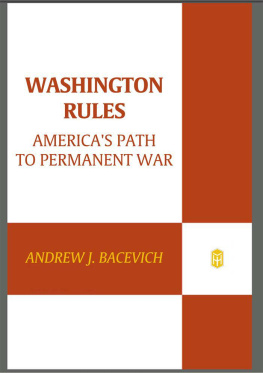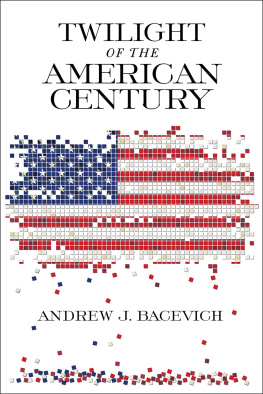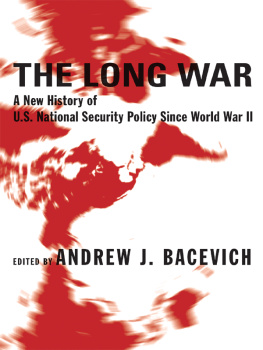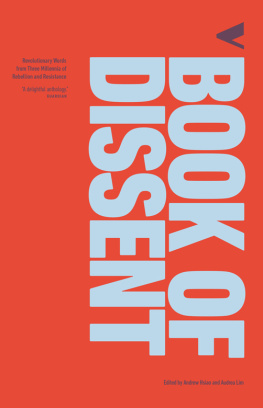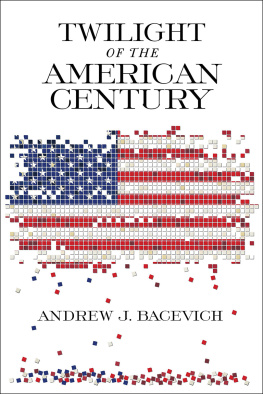Andrew Bacevich - Paths of Dissent: Soldiers Speak Out Against Americas Misguided Wars
Here you can read online Andrew Bacevich - Paths of Dissent: Soldiers Speak Out Against Americas Misguided Wars full text of the book (entire story) in english for free. Download pdf and epub, get meaning, cover and reviews about this ebook. year: 2022, publisher: Metropolitan, genre: Science. Description of the work, (preface) as well as reviews are available. Best literature library LitArk.com created for fans of good reading and offers a wide selection of genres:
Romance novel
Science fiction
Adventure
Detective
Science
History
Home and family
Prose
Art
Politics
Computer
Non-fiction
Religion
Business
Children
Humor
Choose a favorite category and find really read worthwhile books. Enjoy immersion in the world of imagination, feel the emotions of the characters or learn something new for yourself, make an fascinating discovery.

- Book:Paths of Dissent: Soldiers Speak Out Against Americas Misguided Wars
- Author:
- Publisher:Metropolitan
- Genre:
- Year:2022
- Rating:4 / 5
- Favourites:Add to favourites
- Your mark:
- 80
- 1
- 2
- 3
- 4
- 5
Paths of Dissent: Soldiers Speak Out Against Americas Misguided Wars: summary, description and annotation
We offer to read an annotation, description, summary or preface (depends on what the author of the book "Paths of Dissent: Soldiers Speak Out Against Americas Misguided Wars" wrote himself). If you haven't found the necessary information about the book — write in the comments, we will try to find it.
Paths of Dissent: Soldiers Speak Out Against Americas Misguided Wars — read online for free the complete book (whole text) full work
Below is the text of the book, divided by pages. System saving the place of the last page read, allows you to conveniently read the book "Paths of Dissent: Soldiers Speak Out Against Americas Misguided Wars" online for free, without having to search again every time where you left off. Put a bookmark, and you can go to the page where you finished reading at any time.
Font size:
Interval:
Bookmark:
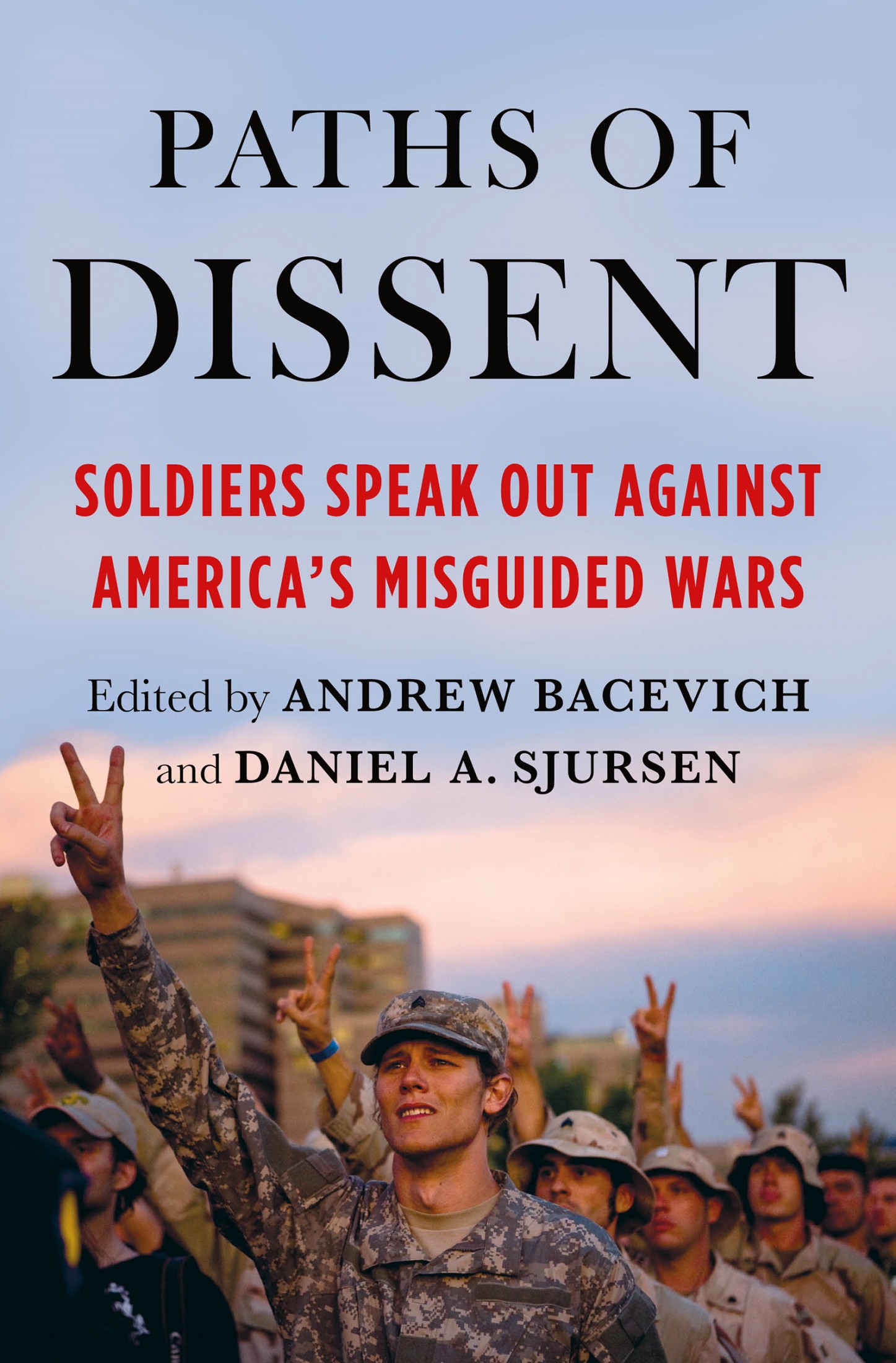

The author and publisher have provided this e-book to you for your personal use only. You may not make this e-book publicly available in any way. Copyright infringement is against the law. If you believe the copy of this e-book you are reading infringes on the authors copyright, please notify the publisher at: us.macmillanusa.com/piracy.
In memory of
Ian Fishback,
Major, US Army
19792021
In response to the 9/11 attacks, the United States plunged willy-nilly into a war that political authorities explicitly characterized as global. Few observers at the time objected to the formulation. For a globally preeminent power, a war undertaken on a scale acknowledging no limits seemed eminently plausible.
To say that things havent gone well since is to engage in considerable understatement. Interventions begun with high hopes of quick, decisive victories led instead to protracted, inconclusive, and exceedingly costly campaigns. The worlds self-proclaimed greatest military found success elusive. In the case of Afghanistan, twenty years of exertions culminated in unambiguous strategic failure, a judgment offered by none other than the chairman of the Joint Chiefs of Staff.
The American people have yet to reckon with the implications of military miscalculations and disappointments stretching back to the beginning of this century. Lest they be charged with failing to support the troops, ordinary Americans shy away from inquiring too deeply into the cumulative errors of judgment and execution that have marred recent US military misadventures. And if mere citizens are disinclined to confront those failures, members of the nations political and military elite are even less willing to do so.
A conviction that such a reckoning is both necessary and long overdue inspired this book. Paths of Dissent offers insights into how and why recent US military efforts have gone so badly astray. Flagrant malpractice by those at the top inflicted untold damage on the troops we ostensibly esteem, on populations US policymakers vowed to liberate, and ultimately on our own democracy. The adverse effects of war are by no means confined to the immediate arena in which fighting occurs.
By their very nature, wars are complex. Authoritative truth regarding any war is necessarily hard to establish. Arriving at even an approximation of the truth requires tapping into varied and perhaps even contradictory perspectives.
In practice, when it comes to staking out claims to truth about any war, those who wield powerpresidents, cabinet secretaries, senior advisors, and top field commandersoccupy positions of privilege. They possess the biggest megaphones. Granted preferred access to the media and opportunities to publish widely reviewed and read memoirs, they disseminate their own inevitably self-exculpatory versions of the story. More often than not, they obscure rather than clarify.
Danny Sjursen and I conceived this book to give voice to a different group: veterans of our post-9/11 conflicts who in a time of war freely volunteered to serve and then developed second thoughts about the conflicts in which they participated. We invited these military dissenters to bear witness to what they saw, did, and learned. We asked them in particular to reflect on what had brought them to the military in the first place, and how the realities they encountered might have differed from their expectations. Given our nations notable propensity for war, combined with a general aversion to actually donning the uniformthose who serve tend to come only from military families and the economically deprivedthe candid firsthand testimonials contained in this book amount to an instructive exercise in civic education.
With just a single exception, everyone whose words appear in this book is a veteran of our nations post-9/11 wars. Several completed multiple combat tours. In many respects, they are a diverse group. They are male and female, of varied ethnicities and upbringings, veterans of service in different branches of the armed forces. Some fought as foot soldiers; others served as artillerymen, combat engineers, intelligence specialists, and in assorted other capacities. Some were commissioned officers, others members of the rank and file. A few briefly tasted a simulacrum of victory, participating in the initial, hopeful stages of wars where actual success was destined to remain out of reach. Others arrived after stalemate had long since set in.
The one exception is myself. I am a veteran, but not of Iraq or Afghanistan. I participated in a different war, though one equally misguided, mismanaged, and wasteful: Vietnam. And I have come to appreciate the connecting tissue linking my own experience of a half century ago to that of these much younger veterans.
My tour of duty in Vietnam occurred during the wars later phases, after the turning point of the 1968 Tet Offensive, and after it had become abundantly clear (even to a green-as-grass lieutenant) that events were headed toward a less-than-satisfactory outcome. Subsequent decades, spent first on active duty and then as a teacher and writer, brought me to a deeper understanding of the Vietnam War and sharpened my appreciation of what it signified. With the passage of time, I concluded that classifying Vietnam as either a mistake or a tragedy amounts to little more than subterfuge. To use those terms is to evade a much deeper and more troubling truth. In fact, from its very earliest stages until its mortifying conclusion, Americas war in Vietnam was a crime.
That realization played a large role in propelling me on my own belated path toward dissent, a role that has never come naturally to me. By upbringing and early education, I am inclined to defer to authority. Four years of intense socialization as a cadet at West Point reinforced this tendency. As a youth and young adult, even into middle age, I was inclined to give the benefit of the doubt to the official lines handed down from on high, whether by high-ranking government officials, senior military commanders, or cardinal archbishops of my church. Their ascent to positions atop the relevant hierarchy testified to their personal worthiness and to the basic integrity of the institutions over which they presided. Or so I believed, in the face of ever more abundant evidence to the contrary.
Some of us learn quickly, others less so. It has always been my lot to be a slow learner.
On that score, the wars in Afghanistan and Iraq served for me as a final tipping point. The latter in particular, an illegitimate war of choice utterly divorced from US security interests and the well-being of the American people, played a decisive role in completing my education.
The invasion of Iraq in March 2003 and the debacle that ensued brought into sharp focus the disastrous implications of the interventionist turn in US policy that had followed the end of the Cold War. Midway through the first decade of the twenty-first century, with US forces bogged down in two unwinnable wars and various other lesser contingencies, it became evident that policymakers and generals alike had either forgotten the mistakes that doomed US efforts in Vietnam or were seemingly intent on repeating them.
Ignorance, incompetence, and mind-boggling hubris combined to produce the cataclysm of the Vietnam War. Those same qualities pervaded the planning and implementation of the several campaigns on which the United States embarked in the aftermath of 9/11. That the United States had resumed its march to military folly within my own lifetime was beyond distressing. It was cause for mourning.
Font size:
Interval:
Bookmark:
Similar books «Paths of Dissent: Soldiers Speak Out Against Americas Misguided Wars»
Look at similar books to Paths of Dissent: Soldiers Speak Out Against Americas Misguided Wars. We have selected literature similar in name and meaning in the hope of providing readers with more options to find new, interesting, not yet read works.
Discussion, reviews of the book Paths of Dissent: Soldiers Speak Out Against Americas Misguided Wars and just readers' own opinions. Leave your comments, write what you think about the work, its meaning or the main characters. Specify what exactly you liked and what you didn't like, and why you think so.

